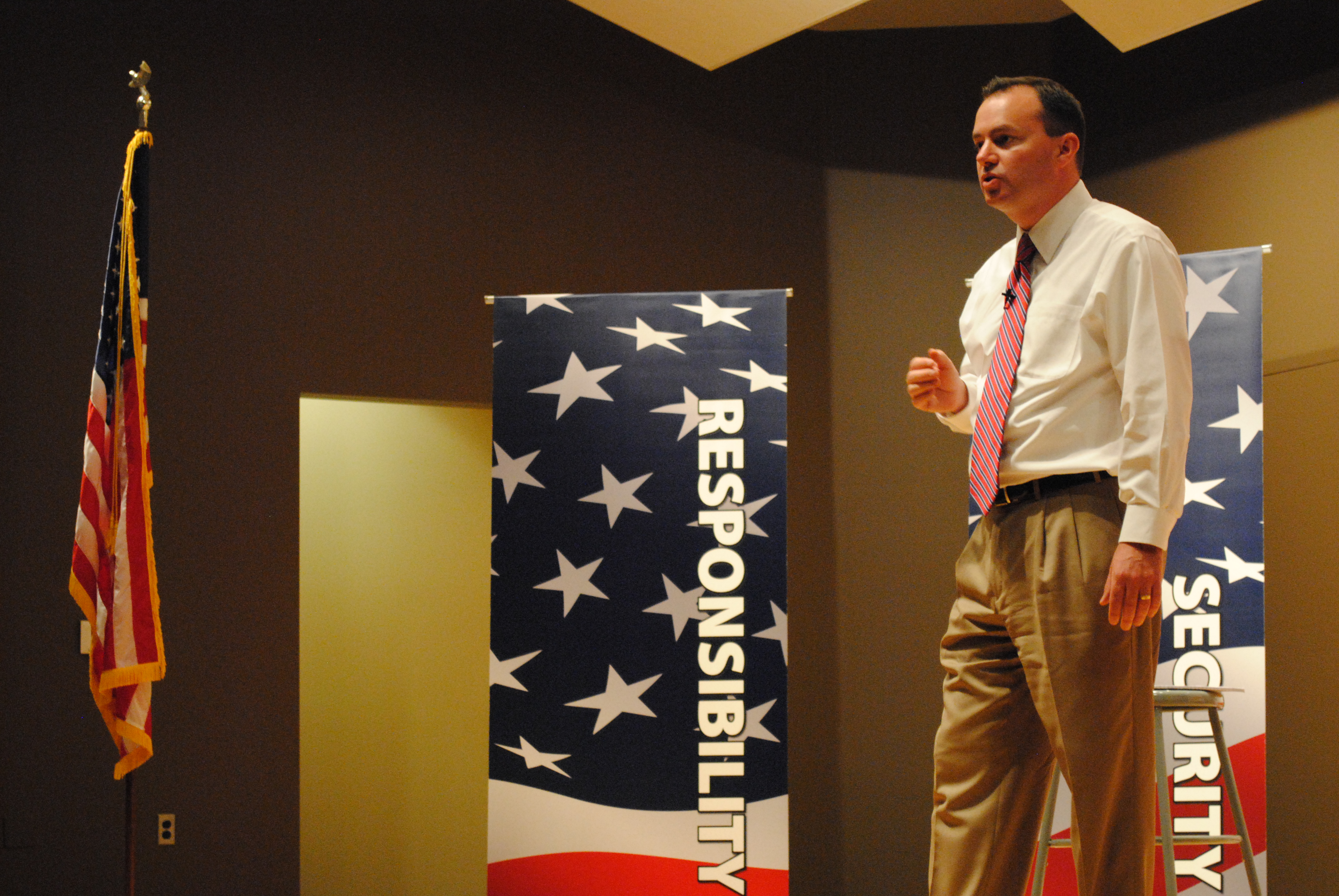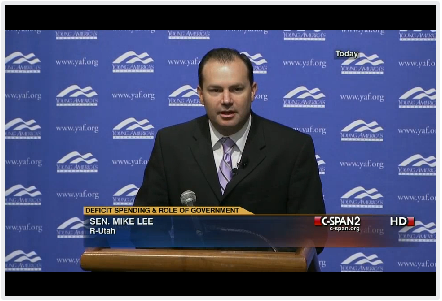Lee Statement on President's Upcoming Speech
Sep 7, 2011
The President’s agenda for the past two and half years has been a failure. From persistent unemployment to the first credit downgrade in our country’s history, President Obama's economic policies are making Americans worse off. For the good of the country, the President should advocate proposals that will get the federal government off the backs of the country's job creators and incentivize investment in our economy.
54,920 Reasons Jobs Aren't Being Created -- Day Lee Briefing 9/06/2011
Sep 6, 2011
Today, Senator Lee returns to Washington D.C. from Utah after the August recess. He held several successful town halls last week. Lee will hold his weekly tele-press conference with Utash media this afternoon.
Senator Lee Responds to Justice Department's Decision to Block AT&T and T-Mobile Merger
Sep 1, 2011
I am disappointed in the Justice Department's decision to seek to block the proposed merger between AT&T and T-Mobile. The Senate Antitrust Subcommittee received significant evidence that the transaction could benefit consumers through enhanced service quality, expanded network capacity, increased data speeds, and continued innovation of data-rich handset devices and applications. I look forward to reviewing the Department's analysis and trust that the merger review process will be directed towards maximization of consumer welfare.
Recap of Beaver and Cedar City Town Hall Meetings
Sep 1, 2011

Yesterday, I held two more town halls in Southern Utah to hear from residents about the issues their having in their communities. The smaller event in Beaver turned into a great dialogue about a range of issues affecting Beaver County.
Fairview Town Hall Recap
Aug 31, 2011
Around 150 people attended and the issues ranged from spending in Washington to immigration to the Narrows project. I heard many people voice concerns that Washington was not doing its job addressing illegal immigration into our country. They said that state legislators in Utah had tried to do something about the problem but that ultimately the federal government would have to step up enforcement. I couldn’t agree more, and would add that part of the problem is how difficult it is to come to this country legally. By addressing the backlog of legal immigration we can significantly reduce the motivation to come here illegally.
Congress Needs Structural Reform
Aug 30, 2011
There is very little accountability in Washington when it comes to how the federal government spends taxpayer money. Having watched how things work from the outside, I was frustrated at the obvious waste and abuse of Americans’ hard-earned dollars. The system looked like it was intentionally set up so Congress and the President could continually find ways to put off difficult decisions.
Washington doesn't know best
Aug 29, 2011
It's well past time to have a spirited debate over the proper role of government, and the proper reach of government into our lives. Clearly, there are two very different visions for what this role should be.
Coming to a Town Hall Near You
Aug 24, 2011

During the final week of August, Senator Lee will be attending several town hall events in southern Utah. Senator looks forward to meeting with Utah's citizens to discuss the important issues facing our nation. All are invited to attend. You can find the time, date, and location of each event below:
Restoring the Limited Role of the Federal Government
Aug 11, 2011

We have to get out of it. Our ability to provide jobs, our ability to continue to be the world's most robust economy depends upon getting our house in order, but it is not just our financial well-being, it is also our individual liberty that will benefit as we take this step, as we pass a balanced budget amendment, and as we restore that which is properly ours.
U.S. Senator Mike Lee Responds to S&P Downgrade of United States
Aug 5, 2011
U.S. Senator Mike Lee responded to S&P lowering the long held AAA rating for the United States saying, “This downgrade confirms what we have known was coming, but have chosen to ignore. It confirms that the true threat to our country, our economy and our way of life is our debt and the continued deficit spending Washington and the Obama administration are pursuing.”
